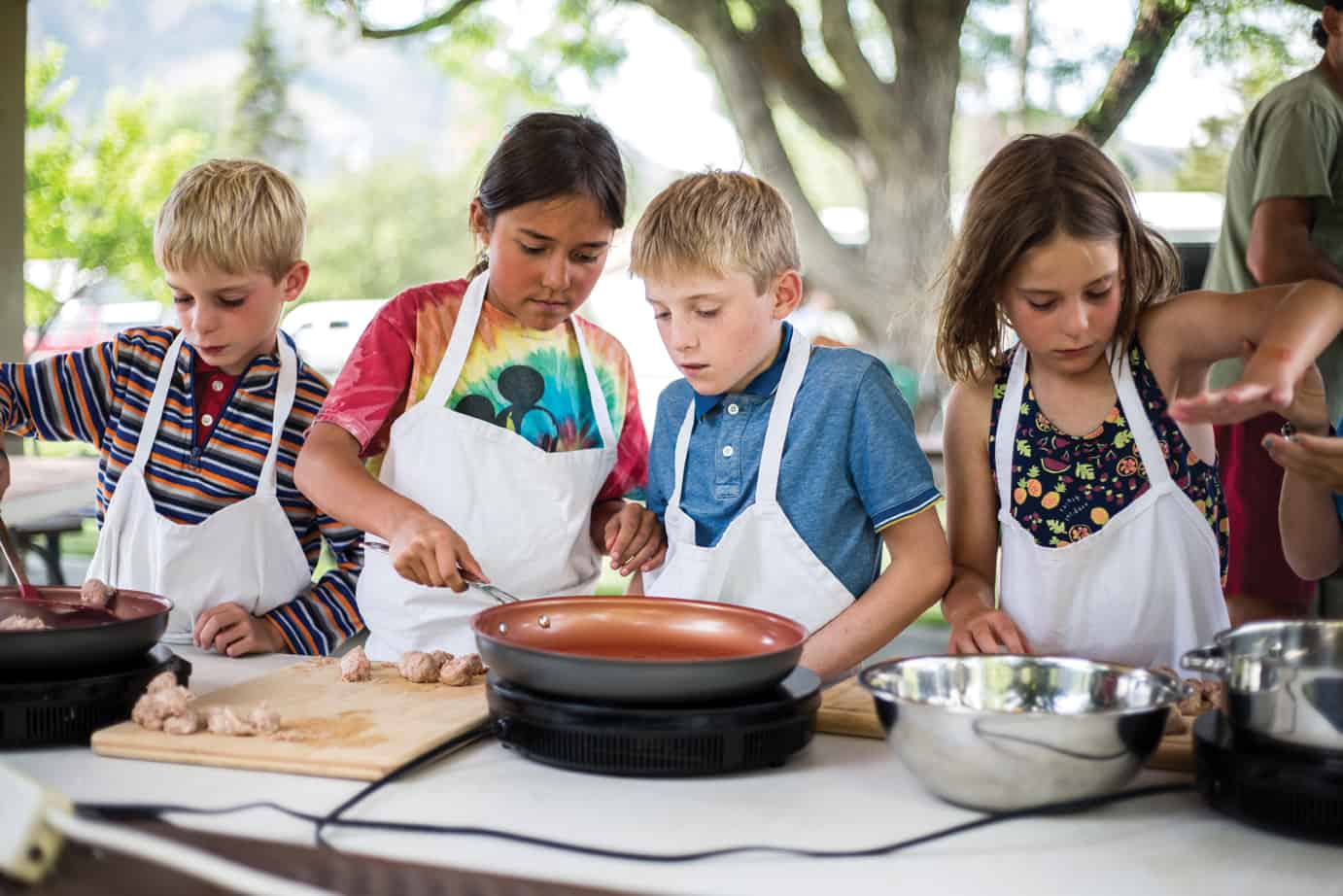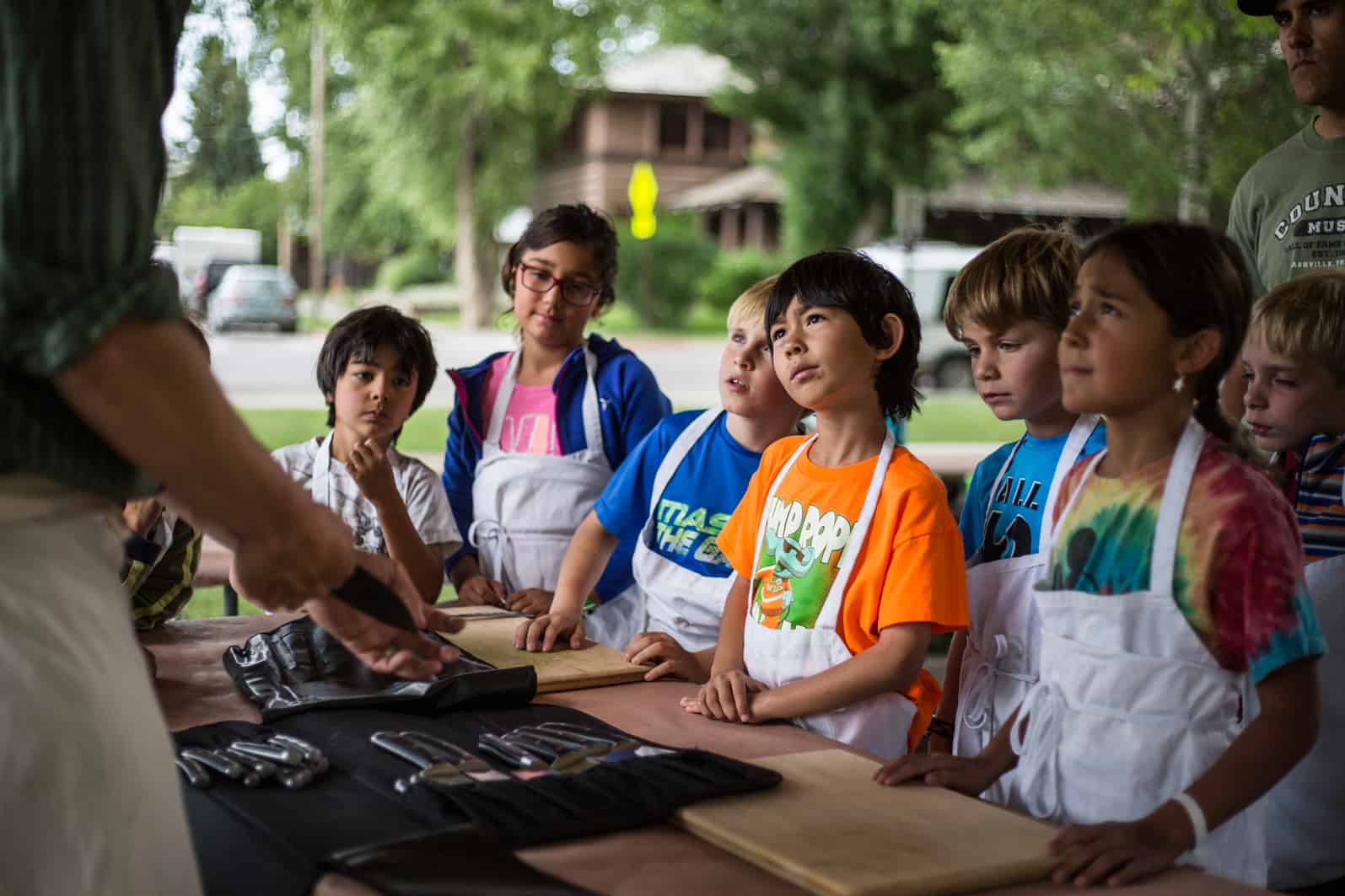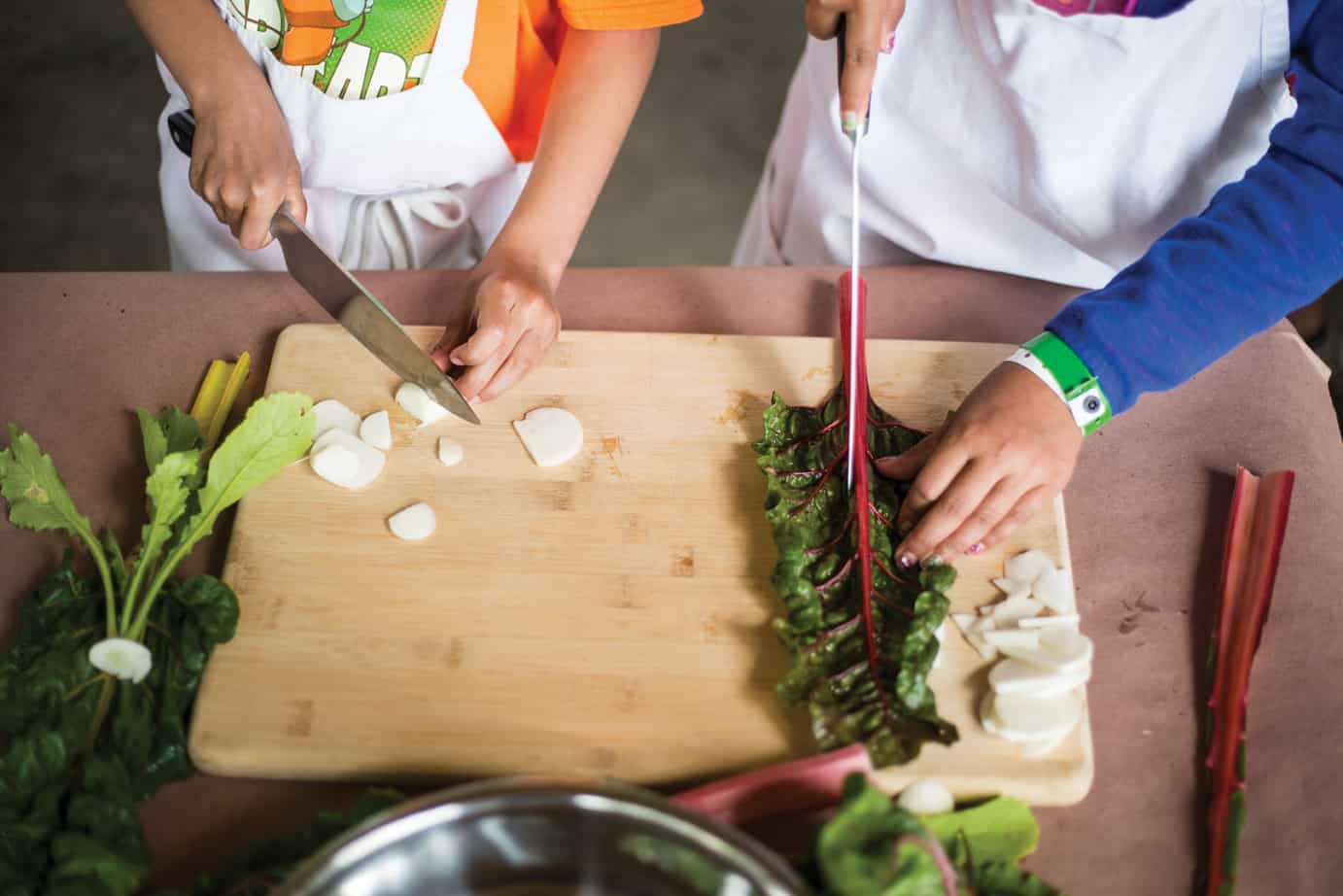By Amelia Mayer // Photography by Ryan Dorgan
—
Involving kids in fundamental community activities is the best way to foster sustainable practices. Our fertile land gives back abundantly with food to nourish our bodies; our job is to teach children the why and how, inspiring them to act as its stewards.
Here in the Tetons, a handful of organizations help young community members learn how to grow, prepare, and cook nature’s bounty. The camps and classes they provide encourage a long-term commitment to improving our local food system.
Scott Steen of Slow Food in the Tetons lays out the group’s mission: “We imagine a community in which good, clean food is available to everyone. And creating a robust local food system is how we can achieve this goal. … We teach [children] why local food is important for their health, for building a strong community and local economy, and for creating a cleaner environment. There is a huge disconnect between people and food, and we’re trying to rebuild these connections.“
Slow Food in the Tetons reaches out to kids in a variety of ways throughout the year. In the summer, it hosts a farm-to-table cooking camp that spans eight weeks and takes place at the People’s Market. Students learn the importance of seasonal cooking and healthy eating while meeting local farmers and creating hands-on connections with local food sources. Slow Food also offers weeklong cooking and farming summer camps, taught by chef and farmer Ian McGregor and held in a diversified garden and outdoor kitchen in South Park. Kids learn basic farming skills like planting seeds, cultivating and harvesting food, and outdoor cooking.
During the school year, look out for Slow Food’s after-school classes. They are popular and fill up fast with returning students enthusiastic about cooking and food. The classes focus on showing kids where food comes from, how it was raised, what it takes to get it to their plates, and how their eating choices affect the whole system. Students also learn life skills like cooking without a recipe and using their taste buds to dictate what they include in a dish.
Steen knows that the future of local food lies in the hands of kids. “While Slow Food also holds programming for adults, we believe that the best way to affect long-term change in our local food system—and our best investment in the future of the organization—is to create programs through which kids make meaningful connections with their food and farmers,” he says.
Emily Sustick, program director at Full Circle Education, believes that when students “eat to learn, they also learn to eat.” Full Circle’s programs take kids from garden to plate in “full circle” fashion. Being involved in the entire process gives children an opportunity to build life-long relationships with food and the natural world. These relationships encourage them to make daily healthy food choices, while investing in the care of our planet.
Based in Victor, Full Circle focuses on educating kids both in school and farm settings throughout Teton Valley and Jackson Hole. With the help of school administrators, teachers, and parent volunteers, Sustick has helped several area schools build onsite gardens. She works with teachers to integrate garden lessons (like growing vegetables and the importance of pollinators) into the academic classroom, while mentoring parents and faculty on how to support and sustain the future of their garden programs. Full Circle also provides classes and camps for community kids in conjunction with Teton Science Schools, and offers customized summer field trips for small groups.
Thanks to Slow Food in the Tetons, Full Circle Education, area farmers, and food purveyors, local kids have a much greater appreciation for both the food on their plate and the process it takes to get there. Look out for other year-round, seed-to-plate programs popping up around the area that allow children to immerse themselves in our food community.




